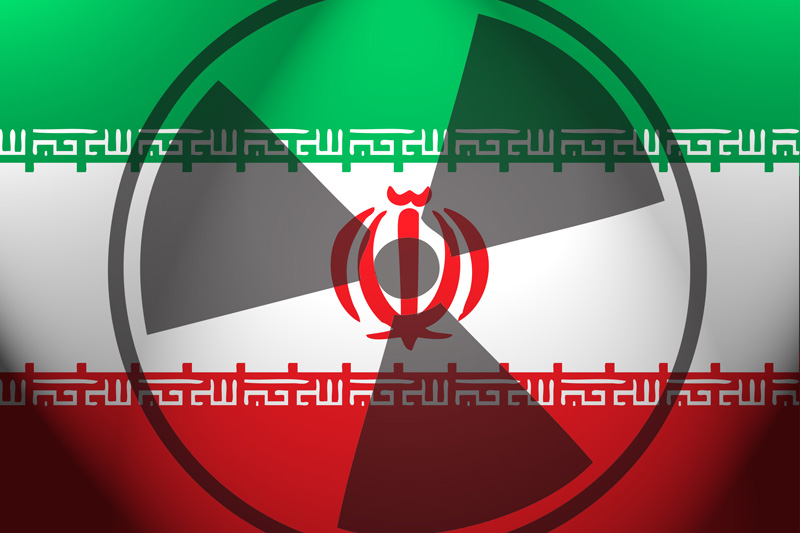When the P5+1 and Iran announced their framework agreement earlier this month, some analysts reiterated that a final deal would result in a proliferation cascade in the Middle East. This widely held and long-standing assumption remains largely unchallenged. But a careful look at the actual technical capability, political and security context, and intentions of potential contenders confirms that much of this hype is baseless.
Those who invoke the proliferation cascade theory often confuse both the cause and the actual result. Would a nuclear agreement with Iran or nuclear-armed Iran cause a cascade? Does the regional spread of civilian nuclear programs count as a proliferation cascade, or is it restricted to the spread of the bomb?
On their own, civilian nuclear programs are not a threat. They are permitted under the Treaty on the Non-Proliferation of Nuclear Weapons (NPT). Saudi Arabia, Turkey, Egypt, Jordan and the United Arab Emirates (UAE) are pursuing or exploring nuclear power to address growing energy demands – needs that have been growing irrespective of Iran’s nuclear program or plans.
But developing nuclear power is neither easy, nor cheap. There are a number of technical, legal and political hurdles regional states need to overcome.
Should they do so, then the fear is that aspects of their civilian nuclear programs will pave the way for the bomb. But that, too, is implausible.
First, the entire region, except for nuclear-armed Israel, is party to the NPT. This means that they’ve already legally given up the nuclear weapon option. Moreover, nuclear weapon states can’t legally provide them nuclear weapons either. Second, many countries have safeguards agreements and some, the additional protocol, in place. This means that their programs are under close International Atomic Energy Agency (IAEA) scrutiny.
None of these states have expressed an interest in reprocessing, which closes the plutonium path to the bomb. Some have even foregone enrichment, which blocks the uranium path to the bomb. That’s the case for the UAE. But some states, such as Saudi Arabia and Turkey, want to reserve “the right” to enrich. Riyadh went further and stated it wanted whatever Iran got out of the negotiations, including enrichment.
Saudi Arabia, Turkey, Egypt, Jordan and the UAE are all dependent on foreign suppliers and expertise for their programs. They lack the human capacity for the programs. Foreign involvement makes it difficult, though not impossible, to covertly develop a nuclear weapon. This means that suppliers also need to do their due diligence and ensure that buyers use their equipment for purely peaceful purposes.
One explanation as to why Tehran went so far in developing its indigenous nuclear technology, including enrichment, is that international suppliers weren’t as involved and reliable after the 1979 Islamic Revolution. Following the revolution, Iran’s original suppliers, the United States, France and Germany, dumped the country, which then looked East. It went to Pakistan, including the illicit nuclear procurement network led by Pakistan’s A.Q. Khan, Russia and China. But Iran’s government believed it could not rely on any of these partners. Without a strong involvement in its program by foreign suppliers committed to nonproliferation, Iran was able to pursue indigenous nuclear technology. This diminished the international community’s leverage on Tehran.
The Iranian context, however, is different from other countries in the region, which depend on the West and U.S. allies for their nuclear programs. Today’s nuclear newcomers must comply with certain international requirements for their programs to be completed by these suppliers. This means that suppliers can and should try to limit the further proliferation of enrichment and reprocessing.
But technical constraints aside, there are political obstacles to the proliferation cascade theory. Countries like Turkey and Saudi Arabia are dependent on Western allies for their security. Washington can leverage this influence to stop them from going nuclear. The United States showed its willingness to do just that in 1988, when it learned that Riyadh purchased Chinese missiles and it threatened to block the sale of military equipment.
A final agreement on the Iranian nuclear program would be a win for the region. A regional proliferation cascade is an unlikely result. There are too many barriers to it. It is time to remove the cascade assumption from the policy equation. Most importantly, killing a diplomatic process and negotiated deal for the sake of yet another ill-founded “domino theory” would be a grave mistake.
Written by Dina Esfandiary and Ariane Tabatabai | This post is part of the “Iran and the Nuclear Deal” symposium.
 Geostrategic Media Political Commentary, Analysis, Security, Defense
Geostrategic Media Political Commentary, Analysis, Security, Defense





